Has your company benefited from corporate executive coaching? If so, you are not alone. Almost half of the $20B global coaching market is focused on executive coaching, and it is . Executive corporate coaches have become a critical resource for many senior business leaders as they grapple with building healthy organizations in a post-COVID business environment.
If you are not familiar with executive coaching, it is a form of professional development focused on helping senior organizational leaders develop skills and tactics in leadership, problem-solving, and management. Coaches collaborate with their clients on individual priorities in areas such as skills assessment, competency development, situational leadership, career advancement, communication, employee engagement, and change management.
What is Corporate Executive Coaching?
Corporate executive coaching is a professional development practice focused on enhancing the skills, performance, and leadership capabilities of senior executives. Rather than addressing performance issues, executive coaching is often utilized to help high-performing leaders unlock even greater potential. Through personalized guidance, coaches work with executives to improve areas such as leadership style, decision-making, communication, and relationship-building.
For organizations, executive coaching is an investment in their most valued leaders, designed to foster productivity, increase confidence, and drive higher organizational impact. Whether navigating complex growth challenges or managing evolving stakeholder dynamics, executive coaching empowers leaders to align their personal development with the strategic goals of the business. By leveraging insights from assessments and feedback, executives gain the tools they need to overcome obstacles, enhance their leadership effectiveness, and drive organizational success.
Why High-Performing Executives Thrive with Coaching
It might be tempting to think that executive coaching services are primarily focused on problem executives, but the reverse is true: organizations are turning to executive coaching companies for their most valued employees. Why? Because executive coaching is a great investment in a high-performing individual that can offer an even greater contribution. Coaching has been shown to boost productivity by over 40%, generating a median ROI of 788%. Research has demonstrated that corporate coaching increases self-confidence, elevates work performance, enhances communication, and improves professional relationships.
Due to where they are in their corporate development journeys, growth-stage companies experience a lot of organizational dynamics that are addressable with executive coaching. These dynamics include (but are not limited to):
- High-demand environment. Growing a company is very hard work. Long hours wearing multiple hats can be very exciting, but it can also be very draining. Even the most seasoned leaders can easily find themselves operating outside of their comfort zone. Protecting and enhancing personal resilience is often a priority for coaching. Complex growth hurdles. Growth companies face many multidisciplinary challenges. To reach the next level of operational efficiency, leaders often need the types of breakthrough performance that sit at the boundaries of existing functions and processes. Navigating these growth hurdles requires leadership team alignment, creativity, collaboration, and strong interpersonal alliances – topics frequently addressed in coaching. New stakeholders. As companies grow, executives are expected to develop and maintain healthy relationships with a broader array of customers, investors, functional leaders, and employees. Understanding how to do that effectively can make the difference between an organization that is thriving vs. one that is just surviving. Evolving business context. For growth-stage companies, tomorrow’s business can look very different than today. New product / service offerings, geographic locations, partners, and enterprise systems produce a continuous stream of change for executives to navigate. Executive coaching can be an important resource for executives trying to manage those changes – both as a leader and as an employee.
- Complex growth hurdles. Growth companies face many multidisciplinary challenges. To reach the next level of operational efficiency, leaders often need the types of breakthrough performance that sit at the boundaries of existing functions and processes. Navigating these growth hurdles requires leadership team alignment, creativity, collaboration, and strong interpersonal alliances – topics frequently addressed in coaching.
- New stakeholders. As companies grow, executives are expected to develop and maintain healthy relationships with a broader array of customers, investors, functional leaders, and employees. Understanding how to do that effectively can make the difference between an organization that is thriving vs. one that is just surviving.
- Evolving business context. For growth-stage companies, tomorrow’s business can look very different than today. New product / service offerings, geographic locations, partners, and enterprise systems produce a continuous stream of change for executives to navigate. Coaching can be an important resource for executives trying to manage those changes – both as a leader and as an employee.
A few of the many areas that executive coaching companies can help leaders achieve higher performance include:
7 reasons executive coaching could be beneficial for your growth company
1. Skills Assessment.
Executive coaches use a variety of assessment instruments to help their clients understand individual strengths and behavioral tendencies. Much like a sports coach working with individual athletes to elevate their game performance, executive coaches use these measurement tools to provide valuable insights on the skills driving each individual leader’s professional performance. By leveraging strengths and addressing gaps, individual performance can be enhanced.
2. 360° Feedback.
Successful business leaders usually recognize the importance of hearing the voice of their customers. When good information exists about how products, services, and customer experiences are perceived, organizations can improve and grow the company’s brand and performance. The same is true for personal brands and performance. On behalf of their clients, coaches can solicit voice-of-the-customer data from each leader’s social ecosystem – managers, peers, employees, and other stakeholders – to develop a more informed perspective on issues such as leadership style, communication, interpersonal relationships, management techniques, executive presence, and employee engagement. These insights enable leaders to develop tailored performance improvement goals and measure their progress.
3. Team Effectiveness.
Sometimes, executive and leadership coaching extends beyond an individual executive into a team of leaders. This type of coaching can be especially useful when forming new teams (e.g., a combined leadership team resulting from a merger or acquisition). Team effectiveness coaching often uses similar assessment instruments as above to explore opportunities for clarifying team roles, collaboration, performance expectations, and leadership commitments. It is a powerful way of building team cohesiveness, shared intent, and aligned action towards a set of goals.
4. Career Management.
Coaching is frequently used to help leaders plan their professional development towards the next level of their career journey. Particularly at higher job levels, career advancement often requires the right mix of experience, expertise, social skills, and professional relationships. Coaches can help leaders develop and execute a career roadmap that will progressively move them toward their goals. Career management can also take the form of recovering from burnout and uncovering new opportunities that contribute to resilience and wellbeing.
5. Conflict Management.
It’s almost inevitable: the responsibilities of leadership can sometimes bring conflict. Business conflict can take many forms such as disagreements with managers, employee contention, team-based struggles, internal political rivalry, and others. Coaches can serve a valuable role in offering a neutral perspective on the problem space, providing new ways of understanding the conflict and serving as a sounding board for potential solutions.
6. Relationship Development.
Many of the other growth leader challenges discussed have one thing in common: relationships. Some leaders – including those who may have professionally advanced largely based on their deep scientific or technical merits – may not be equally skilled in developing and maintaining professional relationships. Coaches can be great advocates and guides for identifying and cultivating stronger executive-, board-, investor-, and employee-level relationships that help the organization accomplish its goals.
7. Change Management.
Let’s face it: change can be difficult both for executives and employees. A common reason many organizations retain the services of an executive coach is to help with change – assisting leaders in understanding what changes are needed and how to pursue them. Change management might be specific to the executive’s role (i.e., how do I evolve what I do?), organizational culture (i.e., how do I influence change?), management (i.e., how do I lead through change?), or employee engagement (i.e., how do I build stronger relationships with this change?).
Of course, executive coaching is not an ideal fit for everyone – a leader needs to be curious, motivated, and growth-oriented to get the maximum benefit from coaching. But for executives ready for coaching, the best coaches become trusted thought partners – they help leaders analyze, plan, and implement tactics that improve their professional lives and the performance of their organizations. Skilled coaches – especially those who understand the unique aspects of your business and industry – can have an outsized impact on organizational velocity and effectiveness. They accelerate value creation by helping executives remove obstacles and more rapidly capture new growth.

